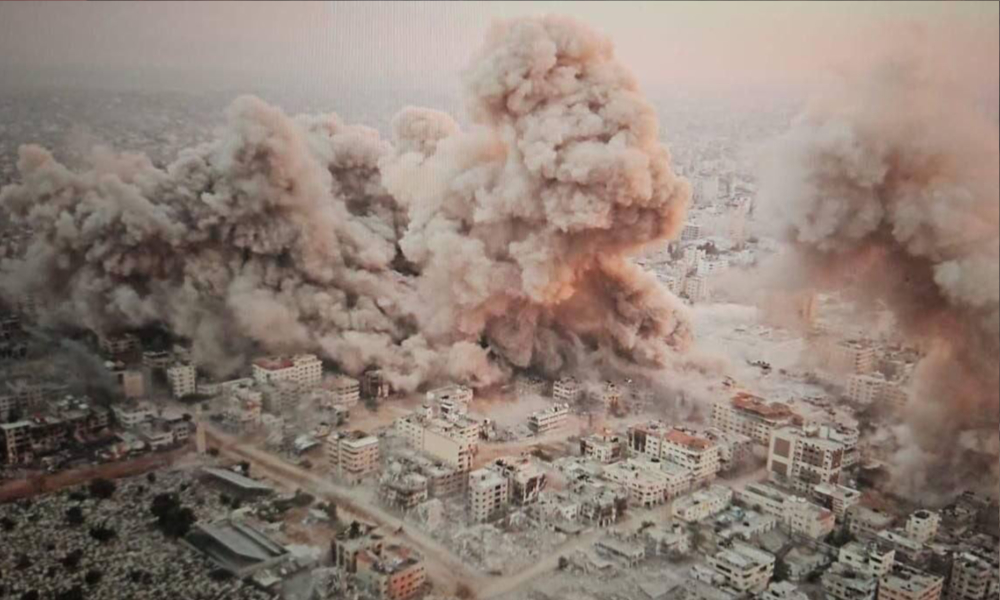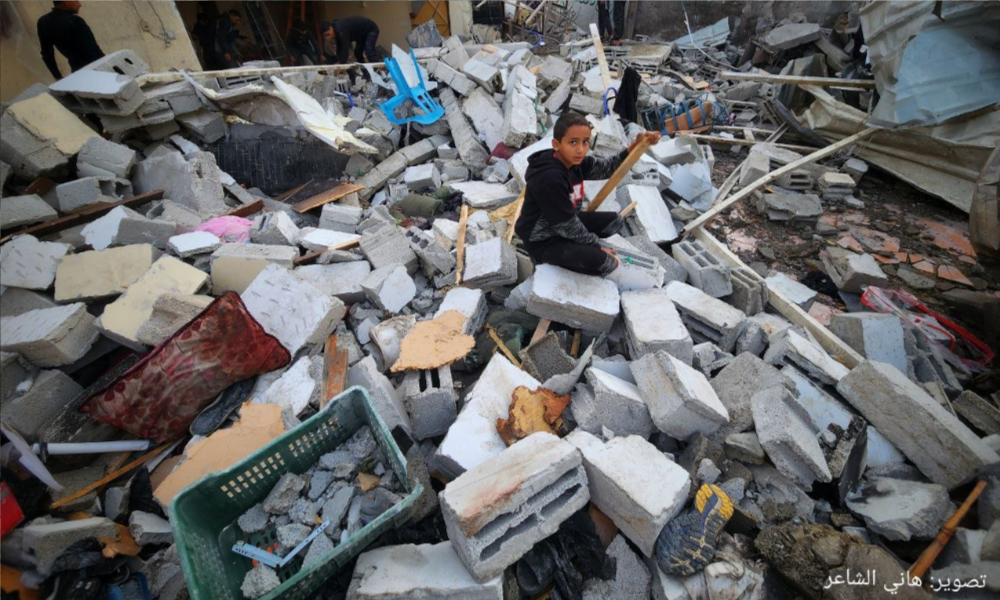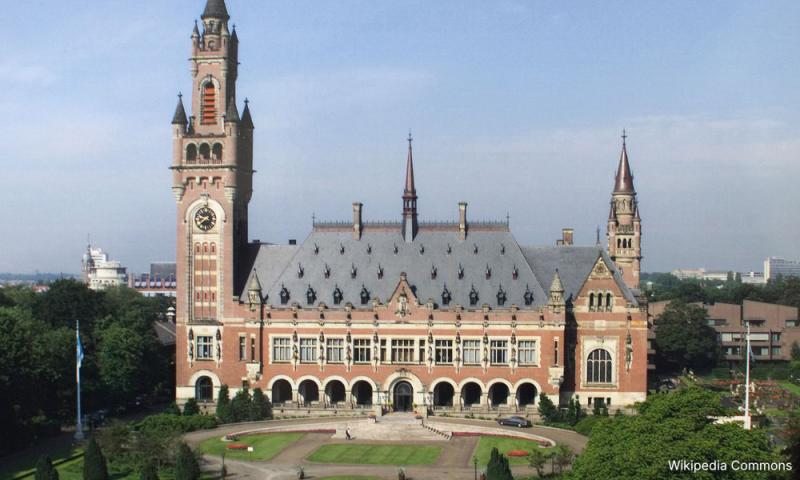LETTER | South Africa’s splendid strategy at The Hague
LETTER | The case of South Africa v Israel on the application of the Genocide Convention before the International Court of Justice (ICJ) has undoubtedly left an indelible mark in the history of global justice.
The case had indeed gathered global attention in the past few days. With the submission made by a cohort of international lawyers representing South Africa led by John Dugard, it was regarded by many as a momentous period in the fight against Israel’s atrocities.
Excerpts from the hearing, including the stunning submission by Blinne Ní Ghrálaigh KC had reverberated around the world and won plaudits all over the internet.
In essence, the legal dispute brought by South Africa pertains to the application of the Genocide Convention upon Israel. Ultimately, South Africa submitted that the acts and omissions by Israel in the wake of Oct 7, 2023, are genocidal in character.
That is so because they are all intended to bring about the destruction of a substantial part of the Palestinian national, racial and ethnic group, who are part of the Palestinian group in the Gaza Strip (“Palestinians in Gaza”).

Ultimately, South Africa submitted that the provisional measures sought are highly pertinent by virtue of Israel’s ostensible disregard of its “erga omnes” obligations to stop the alleged genocide.
The continuity of Israel’s genocide despite various alarms by the international community, and perhaps under South Africa’s own démarche initiatives, therefore, warrants the Peace Palace to intervene.
To underscore this point, South Africa relied upon a preponderance of evidence which directly corresponds to the essence of all genocidal elements.
South Africa referred, inter alia, to a plethora of reports by the human inquiry commission and many other United Nations-established fact-finding missions that yield a detailed account of Israel’s infliction of grievous harm.
This includes the overwhelming statistics of human deaths and destruction of the whole Gaza region.
The whole written memoranda submitted by South Africa may be seen as a legal documentation of criminal acts committed by Israel, culmination of which is genocide.
Brilliance of South Africa’s legal strategy
One particular brilliance in South Africa’s legal strategy against Israel is the selection of genocide as the core theme of Israel’s criminal acts.
The crime of genocide is a narrowly circumscribed concept reserved for a particular subset of atrocities. The denotation of genocide, coined by a Polish lawyer, Raphael Lemkin in 1945 is a marriage of Greek terms “geno” (meaning “race”) and “cide” (killing”).
Hence, the word genocide connotes a list of acts that result in the denial of the right of existence of entire human groups based on race, nationality, religion or ethnicity.
These acts include killing, causing serious bodily or mental harm, and infliction of conditions of life calculated to bring about its physical destruction, all of which are included in South Africa’s submission.
Given the heinous character of the crime as observable in the aftermath of the Holocaust and later in Rwanda and former Yugoslavia, the obligation to prevent and punish genocide is deemed “erga omnes” in international law - an obligation “towards all”.

The bedrock understanding of the duty is that because the crime of genocide is so heinous - to shock the conscience of mankind - every state, regardless of how remote the distance from its physical commission, has an internationally bound duty to uphold the obligations as enshrined under the 1948 Convention.
Another distinctive feature of genocide from other international crimes is its “dolus specialus” mental element, that is, the specific intent to destroy, in whole or in part, the physical destruction of the population based on the prescribed characteristics.
Therefore, to prove genocide, it must be satisfied not only that the perpetrator intended to cause physical harm to the population, but that he or she intended to do so because of the victim’s identity be it nationally, religiously, ethnically or racially.
Given the delicacy and potential travail in proving such specific intent, it is widely thought to be a route full of impediments to contend that what Israel has done and is doing in Gaza is genocide.
This results in many international human rights practitioners describing the acts of Israel as apartheid or ethnic cleansing under the ambit of “crimes against humanity” or war crimes, instead of action of the genocidaires.
Such an obstacle was, however, astutely resolved by South Africa in seeking provisional measures by the ICJ.
Firstly, the nature of the expedient hearing for its request for the indication of a provisional hearing is not to conclusively determine that Israel had, beyond reasonable doubt, committed genocide.
By contrast, the threshold for a request for indication of provisional measures by the ICJ, as established in the case Myanmar v Gambia is only that it is “plausible” that there is a risk of irreparable prejudice and urgency by virtue of the breach of the Genocide Convention.
Genocide barred even during war
Therefore, South Africa is relieved from carrying the overwhelming burden of proving the intent, thereby retaining the claim of genocide against Israel.
Secondly, and this is of utmost importance with respect to the conflict, the claim of genocide means that Israel cannot now claim to have acted in self-defence from the attack by Hamas.
As Article 1 of the 1948 Convention made clear, the crime of genocide “whether committed in time of peace or in time of war,” is still a crime under international law.
This means, as what the author of the convention intended it to mean, that genocide can never be justified be it upon the notion of military necessity. Genocide simply is non-justifiable and is never permissible.
The outcome of this highly tactful approach is that it left Israel entrapped in the following circumstance: Israel is now exposed to an international public hearing, a process through which a detailed account of its atrocious conduct, whatever the name of the crime is, that was broadcasted, and will face that hurdle with a limited set of defence available to them.
This is the realm Israel has now entered, as witnessed by every part of the world, the price they have to pay for the genocidal act upon the Palestinians.
Writer is currently reading law at Monash University, Australia.
The views expressed here are those of the author/contributor and do not necessarily represent the views of Malaysiakini.
RM12.50 / month
- Unlimited access to award-winning journalism
- Comment and share your opinions on all our articles
- Gift interesting stories to your friends
- Tax deductable
